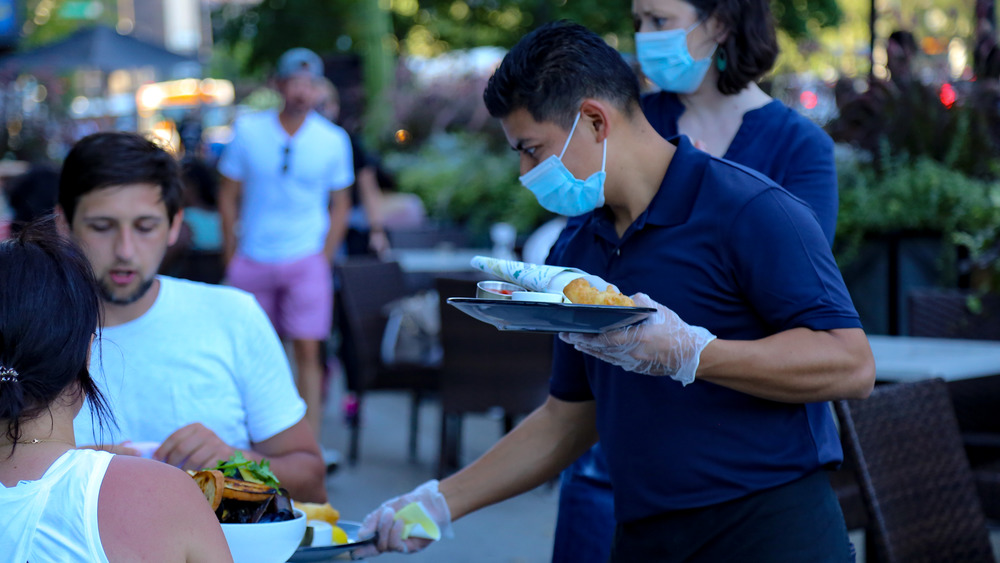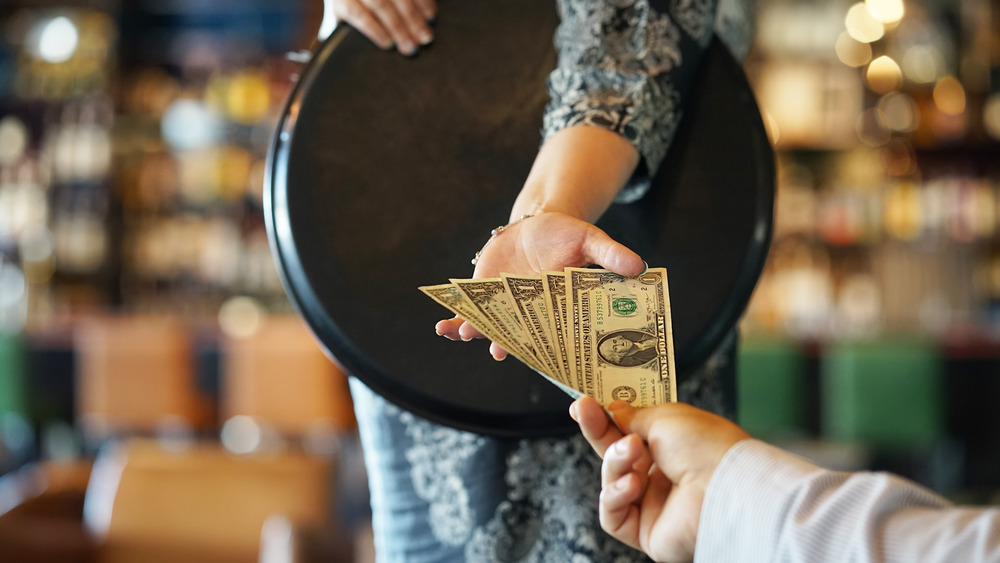Here's How Chicago Might End Restaurant Tipping For Good
People talk more and more these days in terms of "B.C." and "A.D.": "Before COVID-19" and "After the Disease." Before COVID-19, many restaurants had long operated under the assumption their customers would help them pay their employees' wages by tipping. Now, in some Chicago circles at least, tipping culture is starting to go away.
When Paul Fehribach reopened the doors of his Big Jones restaurant in Chicago last summer, after a COVID-19 shutdown, tipping was no longer an option. Instead, Fehribach started paying his employees a more livable wage (via Chicago Tribune). Referring to tipping, Fehribach said, "It's wrong, it's always been wrong. Our workers deserve the security of knowing what they are making when they come to work."
Different Chicago restaurateurs have different reasons for abolishing tipping. For Fehribach, it's the racism and the homophobia. He has analyzed his staff's tips over the years and found that Black servers, women, and servers perceived as LGBTQ+ are getting shorted (via Eater Chicago). As Fehribach told the Tribune, "It is not acceptable that customers will decide what to compensate my employee based on skin color, race, gender identity."
Tipping encourages customer harassment of female servers
Forward-thinking restaurant owners also have other reasons for eliminating tipping from their establishments. The Chicago Tribune noted that female servers sometimes feel they need to endure unwanted sexual advances from customers if they don't want to lose their tip. Restaurants in some states can pay servers a subminimum wage as low as $2.13 an hour. Owners are required to make up the difference if tips don't bring a server up to minimum wage at least, but that doesn't always happen. Also, tipping is unfair to the "back of the house" – the people who work in the kitchen and don't receive tips directly from customers.
The no-tip policy has gone over well among his employees, Fehribach told the Tribune, and customers are mostly OK with the change, too. Diners pay a 20 percent service fee in lieu of a tip. This enables Fehribach to pay his staff $18 to $25 per hour.
The no-tip movement does have its shortcomings. Pete Ternes, who owns a pizzeria and brewery in Chicago, told the Tribune the higher wages he's paying will force him to schedule fewer servers for each shift, which could mean slower service. Derrick Tung, another Chicago pizzeria owner, said he worries about retaining the best servers unless every restaurant in Chicago goes the no-tip route. As he put it, "Why would a great server come work for us if they can go down the street and make double or triple?"

